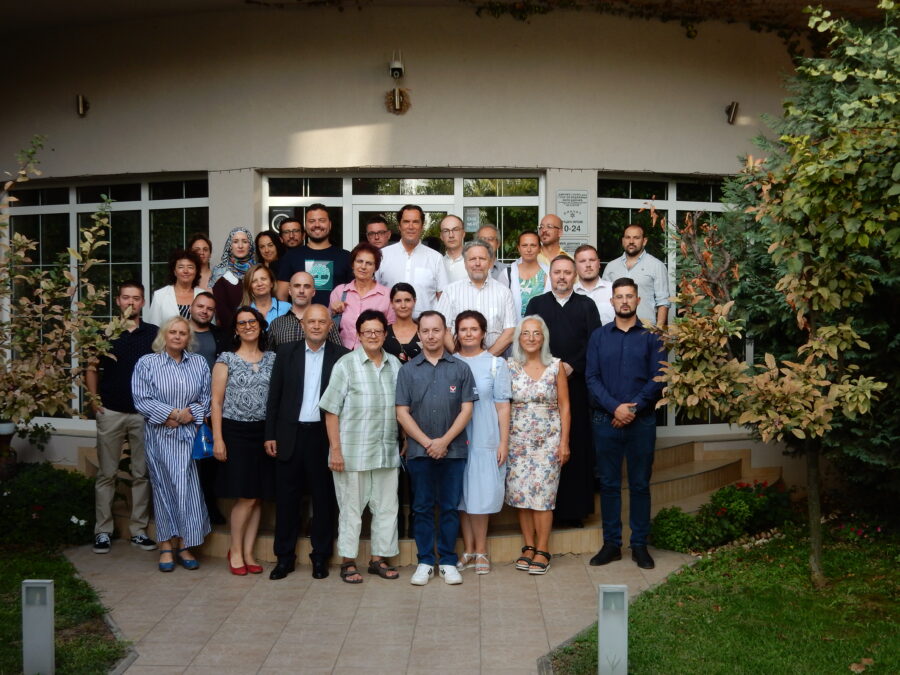Organized by the Institute of Social Sciences from Belgrade (Forum for Religious Issues and the Center for Sociological and Anthropological Research) with the partner support of the Center for Empirical Research on Religion from Novi Sad, the 9thannual international sociological-religious studies gathering themed Religion in International Conflicts of the Modern World, took place on the 6-7 September at Srebrno Jezero, Serbia. Alongside researchers from domestic scientific research institutions, the event also included a number of participants from Great Britain, Iran, Montenegro, North Macedonia, Bulgaria, and Ukraine.
It is the undivided opinion of conference participants that the previous few years have been marked by social conflicts in several neuralgic points of the world that seriously threaten to escalate into conflicts of global proportions. The conflicts in Syria, Ukraine, and Gaza, and the tensions over Taiwan, are not only armed but also involve disputes over identity and different social values, in which religious traditions carry significant importance. Of course, religions and churches are not directly involved, but they have their role, which is to intensify, legitimize, and homogenize the participants in political and geostrategic conflicts in the world.
The meeting was organized in two plenary and four regular sessions. The two plenary sessions considered the relationship between religions and confessions in contemporary geopolitical clashes and possibilities for peace, primarily in Palestine and Ukraine, as well as the relationship between religion and modernism in Iran. The first two sessions discussed the relationship of confessions with war and peace in the Balkans (e.g. Bosnia and Herzegovina, Macedonia, Montenegro) while the latter two related to the pedagogical aspects of building peace in the minds of students, with contributions from authors from Bulgaria and several examples from other Balkan countries.
From the presentations of more than thirty authors, a general conclusion can be drawn that the real causes of international conflicts lie on the other side of religions and confessions. However, they can be effectively used to intensify and morally justify political, economic, and geostrategic conflicts in the world. Therefore, the understanding of religion as an intensifier of social conflicts implies the attitude that religions and churches are not generators of world conflicts, but that they have an instrumental value in them.

